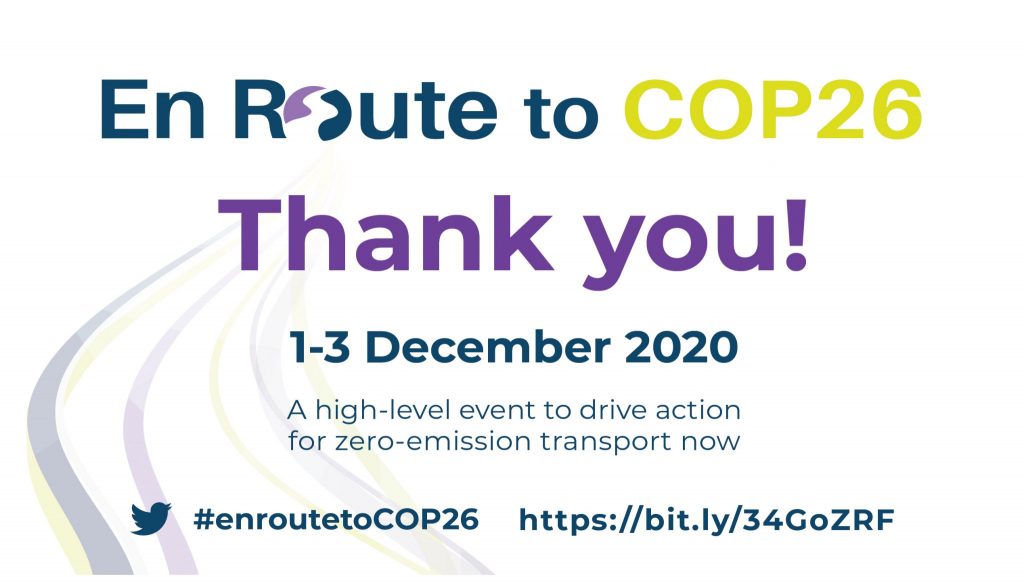
“We speak a lot about what we need to do…but we also have to talk about the don’ts, if we want to have coherent strategies and go in the pathway of decarbonisation we also have to stop doing the wrong things, that’s the most difficult.”
Verena Flues, GIZ
As one of the fastest-growing sources of emissions in recent years, the transport sector has the challenge and urgency to move forward on pathways that are consistent with the overall objectives set out in the Paris Agreement.
Likewise, the impact that the COVID-19 pandemic had on a global level and the new problems that it created, especially in transport and in the mobility of people, has posed new challenges for the sector and for the implementation of recovery strategies that not only address immediate needs but also allow to “build back forward”.
In this context, En Route to COP26 addressed seven central themes, focusing on the decarbonisation of transport and the implementation of climate strategies in the sector. The event was spread across twelve sessions, with the participation of more than 150 exhibitors, including global and national authorities, experts, representatives of international institutions, academics and professionals from the sector, and a high number of participants.
After three days of discussions, some of the key messages of this meeting were:
Changing Transport: GIZ’s participation in En Route to COP26
During the event’s opening session, the Minister of Transport and Telecommunications of Chile, Mrs. Gloria Hutt, announced the Peer-to-peer technical dialogues.
These regional dialogues (in Asia, Africa and Latin America) will bring together representatives of Ministries of Transport and Environment/Climate to network and exchange on successful approaches, implementation strategies, and available tools for decarbonising transport and ensuring a green recovery. Chile will host the Latin America and the Caribbean series as COP25 Presidency.
The exchanges are being supported by the German Environment Ministry (BMU) with the assistance of the German international cooperation organisation GIZ (Deutsche Gesellschaft für Internationale Zusammenarbeit).
National climate and transition to sustainable transport
From a multistakeholder perspective, this session sought to enhance understanding on how to link national climate strategies and sustainable transport towards a paradigm shift to full decarbonisation of the transport sector.
These were the key insights:
MobiliseYourCity’s NUMP Guidelines
The session “Catalysing immediate action in sustainable urban mobility – Do current opportunities help us deliver results sooner than we thought?”, led by EUROCLIMA+, MobiliseYourCity, Rocky Mountain Institute, SLOCAT, and UITP, highlighted critical and near-term opportunities to spur green and equitable recovery through sustainable, low carbon urban mobility.
The session also presented the MobiliseYourCity National Urban Mobility Policies and Investment Programmes (NUMP) Guidelines, which aim at supporting policy makers in developing and emerging economies to develop new and strengthen existing National Urban Mobility Policies and Investment Programmes (NUMPs).
The session also featured an interactive segment, where participants identified some of the most pressing challenges and promising actions that can be taken to drive sustainable, low carbon urban mobility.
The main questions and results of this segment were
Please find here the full outcome document, the event report, all the session presentations and recordings and the participant survey.
